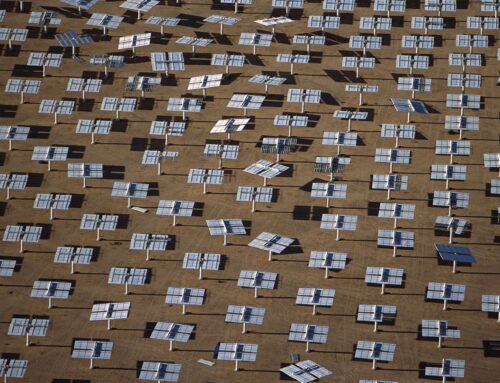Lawsuits Are Piling Up as Trump Upends U.S. Energy Regulation
May 17, 2025
United States President Donald Trump has spent just over 100 days in office, and, in that time, he has attracted a wide range of lawsuits in response to his energy and climate policies. Several states and organisations have recently launched legal action against the Trump administration for energy deregulation, restricting renewable energy development, cutting environmental funding, and other policy moves.
In April, the Trump administration halted the development of the $2.5 billion Empire Wind 1 offshore wind farm in New York. The wind farm was being developed by Norwegian energy major Equinor. The firm is now considering its legal options in response to the halt. Equinor has already spent around $2 billion on the project, which is nearly a third complete, according to reports. Empire was expected to power around 500,000 U.S. homes upon its launch in 2027. The project was approved under the Biden administration in 2023 in support of a green transition.
Equinor has been investing in the U.S. energy market for around 35 years, with estimated funding of over $60 billion in U.S. oil, gas, and renewables projects. Anders Opedal, Equinor’s CEO, said, “We have invested in Empire Wind after obtaining all necessary approvals, and the order to halt work now is unprecedented and in our view unlawful. We seek to engage directly with the U.S. administration to clarify the matter and are considering our legal options.”
On Trump’s first day in office, in January, he signed an executive order for the review of offshore wind permitting and leasing, effectively halting new project development across the country. It directed agencies to stop all permits for wind farms pending federal review. However, the halting of operations at Empire, which had already received all the necessary approvals, came as a shock to the industry.
In May, 17 states and Washington D.C. filed a lawsuit against the Trump administration over the halting of permits for wind-energy projects. The lawsuit said that the government’s decision presents a threat to the burgeoning industry. “This administration is devastating one of our nation’s fastest-growing sources of clean, reliable and affordable energy,” said Attorney General Letitia James of New York, which is one of the plaintiffs. James said the move threatened “the loss of thousands of good-paying jobs and billions in investments” and was “delaying our transition away from the fossil fuels that harm our health and our planet.”
The lawsuit states that, by complying, federal agencies have put major investments that have already been made at risk. The executive order also directed the U.S. attorney general and the interior secretary to explore “terminating or amending” existing leases to wind farms, which has left the wind industry with a sense of great uncertainty. Wind energy contributes around 10 percent of U.S. electricity generation and is set to expand substantially over the coming decade. Several states have ambitious state-level renewable energy targets for the next decade, which most may be unable to achieve without a growth in the country’s renewable energy capacity.
In April, several environmental groups said they were hiring lawyers to take legal action against the Trump administration for its rapid and sweeping efforts to sidestep federal regulations on oil, gas, and coal development. Trump was able to rely on emergency authorities and executive orders to quickly change the shape of the country’s energy sector, however, the lawsuit could pose a threat to upholding these early decisions. Many organisations say that Trump’s moves are at odds with existing laws, including the Administrative Procedure Act of 1946, which requires agencies to publish notices of proposed and final regulations, as well as allow for public input.
Since his inauguration, Trump has issued an executive order requiring agencies to phase out every existing energy regulation by next year. In a separate memorandum, Trump said those agencies may repeal specific regulations without consulting the public. Federal officials have notified companies that they can seek exemptions to clean air regulations via email, exempted dozens of companies from mercury and air toxics limits, fast-tracked a controversial Great Lakes oil pipeline tunnel, and scrapped a court-ordered environmental review of thousands of oil and gas leases on federal lands.
Meanwhile, a group of universities and research institutions, which are facing a Department of Energy funding cut, filed a lawsuit in Massachusetts in April. The lawsuit states that “The pace of scientific discoveries in the national interest will be slowed… Progress on a safe and effective nuclear deterrent, novel energy sources, and cures for debilitating and life-threatening illness will be obstructed. America’s rivals will celebrate, even as science and industry in the United States suffer.”
Trump has barely been in office for three months, and yet he has been able to completely upend U.S. energy and environment policy in that time. States and various organisations have rapidly responded with legal action, calling on the Trump administration to reconsider some of these decisions and continue to support private investment in renewables, environmental protection, and climate funding.
By Felicity Bradstock for Oilprice.com
More Top Reads From Oilprice.com
- Venture Global Pushes Regulators To Greenlight LNG Plant
- Petrobras Considers Return to Nigerian Oil Sector
- Asia’s Fuel Imports Slump to Five-Year Low
Search
RECENT PRESS RELEASES
Related Post



